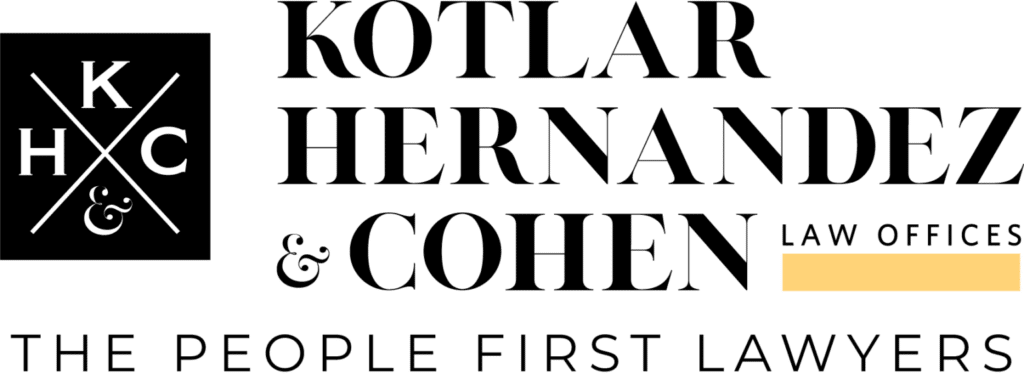
Introduction
Access to medical care is a fundamental right that should be available to everyone, regardless of their immigration status. Unfortunately, many undocumented workers are hesitant to seek medical treatment due to fears of deportation or retaliation. However, it’s crucial to understand that legal protections exist to ensure that all workers, including those without legal immigration status, can receive the medical care they need. This article outlines six key rights that undocumented workers have when it comes to accessing medical treatment.
1. Right to Emergency Medical Care
One of the most critical protections for undocumented workers is the right to receive emergency medical care. Under the Emergency Medical Treatment and Labor Act (EMTALA), hospitals in the United States are required by federal law to provide emergency medical treatment to anyone in need, regardless of their ability to pay or their immigration status. This means that if an undocumented worker is injured on the job or suffers a sudden illness, they can go to any emergency room and receive the necessary care without fear of being turned away.
For example, if an undocumented worker is injured in a workplace accident, such as falling from scaffolding or being exposed to hazardous chemicals, they have the right to be treated at the nearest hospital. Hospital staff cannot deny care based on the patient’s immigration status, nor can they delay treatment to verify the patient’s legal status. Federal law firmly supports this right, providing a safety net for all workers in the U.S.
2. Right to Workers’ Compensation
In New Jersey, undocumented workers are entitled to receive workers’ compensation if they are injured on the job, just like any other employee. New Jersey’s workers’ compensation laws are designed to benefit all workers who suffer work-related injuries or illnesses, regardless of their immigration status. These benefits typically include medical treatment, rehabilitation, and compensation for lost wages during recovery.
For instance, if an undocumented worker in New Jersey suffers a back injury from heavy lifting or develops a repetitive strain injury due to their job, they are entitled to receive medical treatment through workers’ compensation. This can include doctor visits, physical therapy, surgery, and other necessary medical services. Notably, the New Jersey Division of Workers’ Compensation does not inquire about a worker’s immigration status when processing claims, ensuring that undocumented workers can access the benefits they need without fear of exposure.
New Jersey courts have consistently upheld the right of undocumented workers to receive workers’ compensation benefits. Courts have repeatedly reaffirmed that undocumented workers are eligible for the same compensation benefits as documented workers. The court ruled that denying these benefits would undermine the purpose of workers’ compensation laws, which is to provide swift and fair compensation to injured workers, ensuring that they receive the necessary medical care and financial support to recover from their injuries. This legal precedent underscores New Jersey’s commitment to protecting all workers, regardless of immigration status.
3. Right to Confidentiality in Medical Records
One of the main concerns for undocumented workers when seeking medical treatment is the fear that their immigration status might be disclosed, leading to potential deportation. However, medical professionals are legally bound to keep patient information confidential. This includes a patient’s immigration status, which cannot be disclosed without the patient’s explicit consent.
The Health Insurance Portability and Accountability Act (HIPAA) provides strong protections for the privacy of medical records, ensuring that personal health information remains confidential. For undocumented workers, this means that they can seek medical treatment without worrying that their information will be shared with immigration authorities. This legal framework reassures undocumented workers that their pursuit of medical care won’t lead to negative consequences regarding their immigration status.
4. Right to Protection from Retaliation
Undocumented workers also have the right to seek medical treatment without fear of retaliation from their employers. Federal and state laws prohibit employers from retaliating against workers who file workers’ compensation claims or seek medical treatment after workplace injuries. This protection applies regardless of the worker’s immigration status.
If an employer attempts to retaliate—such as by firing the worker, reducing their hours, or threatening to report them to immigration authorities—the worker has legal recourse. They can file a complaint with the Department of Labor or pursue legal action against the employer. There have been numerous cases where undocumented workers have successfully defended their rights and obtained justice after facing retaliation. This protection is crucial in ensuring all workers feel safe accessing the necessary medical care.
5. Right to Access Public Health Programs
Undocumented workers often face barriers to accessing healthcare due to financial constraints. However, they have the right to access specific public health programs that provide low-cost or free medical services. Community health centers, for example, are an essential resource for undocumented workers, offering services from routine check-ups to specialized care.
Access to healthcare programs for undocumented workers varies widely, with some states providing more comprehensive support than others. In New Jersey, while undocumented workers generally do not qualify for Medicaid, they may still receive emergency medical assistance or coverage for specific conditions, such as pregnancy, under state-funded programs. These public health initiatives are essential, helping undocumented workers obtain necessary healthcare and ensuring they don’t have to avoid medical treatment due to financial limitations.
6. Right to Legal Representation
Lastly, undocumented workers have the right to seek legal representation if their rights to medical treatment are denied or violated. Legal support is crucial in navigating the complexities of the healthcare system and ensuring that undocumented workers can access the care they are entitled to under the law. Workers’ compensation laws protect employees, including undocumented workers, by providing access to medical treatment and benefits after workplace injuries.
Legal representation can help undocumented workers challenge medical treatment denials, address issues of retaliation, and ensure that their rights are fully protected. Many organizations offer pro bono services or legal aid specifically for undocumented workers, providing them with the necessary resources to fight for their rights. Access to legal counsel is a powerful tool in ensuring that undocumented workers can obtain the medical care they need without fear.
Conclusion
Undocumented workers have essential rights when accessing medical treatment, including the right to emergency care, workers’ compensation, confidentiality, protection from retaliation, access to public health programs, and legal representation. These rights ensure that all workers, regardless of immigration status, can receive the medical care they need without fear of deportation or retaliation.
If you or someone you know is an undocumented worker in need of medical care, it’s important to seek treatment without hesitation. If you encounter any barriers or if your rights are violated, contacting a lawyer can provide the support needed to navigate these challenges. Our firm is committed to defending all workers’ rights, ensuring everyone has access to the healthcare they deserve.

File for Workers’ Compensation Benefits With Kotlar, Hernandez & Cohen – New Jersey Workers’ Compensation Lawyers
Kotlar, Hernandez & Cohen – The People First Lawyers have been helping injured workers with their New Jersey workers’ compensation claims since 1995. We work tirelessly for our clients to ensure you receive medical care, financial compensation, and justice, regardless of an adjuster or insurance carrier’s claim denials. With four Board Certified Workers’ Compensation Law attorneys on our team, we are well-equipped to handle your work injury or illness claim.
If you’re thinking about filing a workers’ comp claim, if your job has caused you ongoing physical pain in any way, or if you’re looking for help with how to maximize your workers’ comp settlement, contact our law firm to schedule a free consultation or call us 24/7 at (856) 751-7676.

Justin Cohen, Partner
Justin is a partner at Kotlar, Hernandez & Cohen and a Board-Certified Workers’ Compensation Attorney. He is believed to be the youngest attorney in New Jersey to receive his Workers’ Compensation Board Certification. His aggressive style and diligent efforts have helped him to recover significant benefits for his clients.





